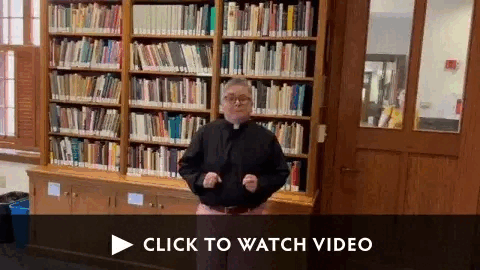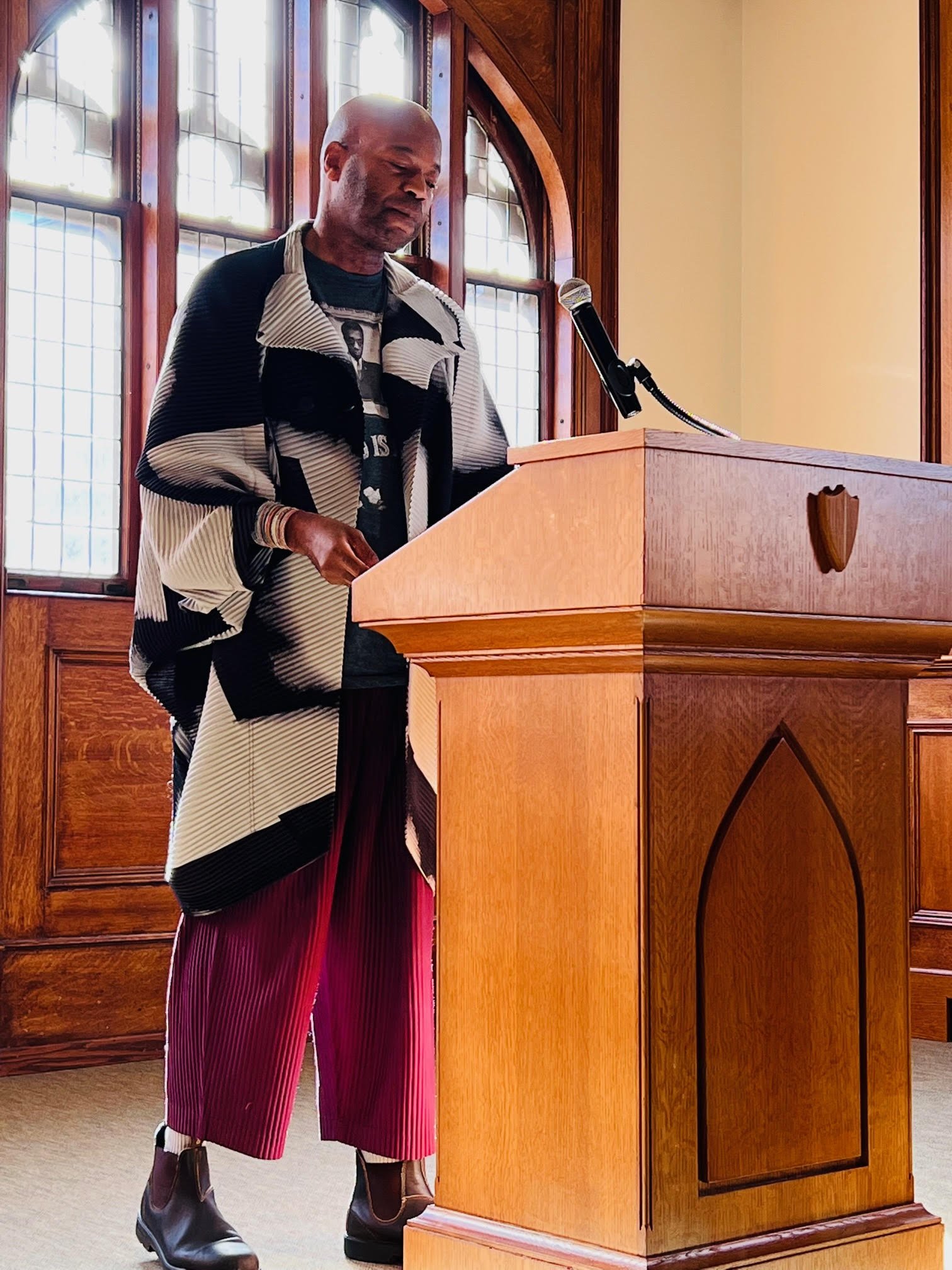The Most Important Meeting You’ve Never Heard Of: The Synod of Whitby, 664
I originally planned on sending a video this week, but I’m writing instead because I’m still recovering from Covid and it would take a lot to make myself look presentable! Remember that in my last video, we learned about the development of “Celtic” practices of Christian life in early Britain that were sometimes at odds with how things were done in Rome. Some of those differences were small, like the way monks cut their hair. Some were critically important for political and financial reasons. In the early British church, the real power brokers in the church were the abbots of monasteries rather than bishops. But one seemingly small difference in practice would rearrange how Christianity in Britain worked.
In the court of Northumbria, King Oswiu had been taught by Irish monks and followed their method for calculating the date of Easter. But Queen Eanflaed, his wife, was taught to calculate Easter according to the Roman method. When one half of a couple is celebrating Easter and the other is still fasting for Holy Week, it’s bound to create some tensions. In 664, a council was summoned to the great monastery of Whitby to settle the question once and for all: how do we know when it’s Easter?
Whitby functioned as a “double monastery”, where a community of monks and a community of nuns shared the same church but lived in separate quarters. Because they were generally governed by an abbess, these double monasteries were the home of powerful women leaders, and St. Hilda of Whitby was no exception.
The debate at the Synod of Whitby centered on a question that is still relevant for Christian life: Where does the church’s authority come from? Who decides, and on what basis, when differences of practice or belief come up? The supporters of the Irish method of calculation argued that “we’ve always done it this way,” a refrain you can hear in church arguments even today! But the supporters of the Roman method appealed to the authority given to Peter in Scripture: “You are Peter and upon this rock I shall build my church and the gates of hell shall not prevail against it and to you I give the keys to the kingdom of heaven.” King Oswiu found that logic convincing, and as a result Christian practice in Britain was brought into alignment with more universal practice.
I encourage you to check out the links and learn more about St Hilda, one of the truly fascinating women of Christian history.
This episode of Time Team, one of my favorite TV shows, focuses on the archaeological search for St. Hilda’s monastery.
Introducing Wesley!
A Trinity Church Special: Anglican History Summer
Come Celebrate Joanne
Dear friends,
I invite you to join us this Sunday, as we celebrate our beloved Joanne and give thanks for her faithful and transformative ministry at Trinity church. What a blessing Joanne has been to us and to so many beyond the walls of Trinity.
We will honor Joanne at each service this Sunday and then following the 10am service, we will gather in Pierce-Bishop Hall for a festive reception to give thanks for her ministry and to send her forth with our love and blessings.
In Christ,
The Rev. Paul Jeanes III, Rector
Unsentimentalized and Undomesticated
The dove descending breaks the air
With flame of incandescent terror
Of which the tongues declare
The one discharge from sin and error.
The only hope, or else despair
Lies in the choice of pyre of pyre-
To be redeemed from fire by fire.Who then devised the torment? Love.
Love is the unfamiliar Name
Behind the hands that wove
The intolerable shirt of flame
Which human power cannot remove.
We only live, only suspire
Consumed by either fire or fire.
— T. S. Eliot, Little Gidding
I think I’ve already talked to you recently about the church at Little Gidding, but on this weekend of Pentecost I have another story about it for you. It’s a story about the work of the Holy Spirit. In 2008, after a year and a half of not knowing what I wanted to do with the rest of my life, I took a trip to the UK and ended up at the church at Little Gidding — setting of the T.S. Eliot poem and home of the 17th century Anglican clergyman Nicholas Ferrar. (Ferrar, as you might recall, was the first to re-institute something like a post-Reformation monastic community in the Church of England.)
Anyway, I was eating breakfast in the kitchen of the tiny retreat house at Little Gidding when a gentleman walked in and sat at the table. He wasn’t a guest, but was apparently a priest who lived in the neighborhood. We began talking, and he asked me where I was from and why I was there. I told him a little about myself, and that I had just left my job with the government and was trying to figure out what might be next. Then, completely out of the blue, he said “you should get a PhD in theology and then you can do something very special for the Church.” Hearing this was alarming — and not a little terrifying. It was certainly unexpected.
Friends, I only vaguely considered going to seminary at all at that point. That encounter, with a man I had never met before and have never seen since, was one of the clearest examples of the Holy Spirit’s work in my life that I’ve ever experienced. It was the moment I received my vocation from God, though I only could clearly realize that in retrospect. But as Eliot describes the descent of the Holy Spirit in the excerpt above, there is something frightening about it. All too often we can sentimentalize and domesticate the Holy Spirit, turning the third person of the Trinity into a generalized source of good feelings. While it’s true that the Holy Spirit is named in Scripture as the Comforter, this is a comfort far different from what the world knows. The Holy Spirit opens up to us possibilities we never could have imagined, drawing us closer to God in ways that are not always easy or pleasant, but which are always sanctifying.
Where might God be speaking into your life, calling you to things you never thought possible? Where is God inviting you to draw near to the purifying fire of the Spirit that does not kill, but gives eternal and abundant life? This week, look around and listen. You might hear something unexpected, too.
Yours in Christ,
The Rev. Cn. Dr. Kara Slade, Associate Rector
Right This Minute
This coming Sunday, May 21, Youth Group will be leading our worship services at both 8 and 10:30am, as I’m sure you have heard by now! Sometimes, when people hear that the youth are leading a service, they imagine it will be, perhaps, a simplified and sweet form of worship. I can assure you that these services will be complex, thoughtful, and evocative.
The teenagers of Trinity have written reflections on the scriptures which will reveal to you the depth of their own spiritual perceptions and will challenge you to consider deeply what they have to say. Our youth have written prayers which will put before you their greatest concerns and will bid you to respond with action to their priorities.
Some of the most thoughtful spiritual insights I have ever heard have come from the youth and children of Trinity Church, so I heartily commend these services to you.
Personally, I am profoundly grateful to all of my colleagues who work with the children and youth here at Trinity: Emily, Connor, Annie, Kara, Paul, as well as our seminary interns. Everyone interacts with the kids with dignity and respect. The spiritual and personal integrity of every young person is valued. Here, our children and young people are talked to, and talked with, and never talked at, or down to. I know none of us would expect otherwise, but this doesn’t necessarily happen in every congregation. The baptismal vow to “respect the dignity of evey human being” has taken hold in this commuity, and the fruit of this committment it readily visible in the consistently growing Youth Group and the joyfully, increasingly crowded north transept.
It is a commonplace in christian communities to say that children and teenagers are the future of the church. When I put that idea before our youth and asked them what they thought of that, they were adamantly happy to point out they are not the church of the future, they are the church of right this minute.
Of course, they are charming, and energetic, and creatively expressive. These are not naïve limitations; these are essential gifts. When Jesus said, “Let the little children come to me, and do not hinder them,” Jesus was not urging us to make sure kids are tolerated. Jesus is offering an admonition to recognize that young people have spiritual sensitivities — just as we had when we were young, that must not be overlooked, nor taken for granted, nor go unheard.
It will be a blessing to us all to hear directly from our youth this Sunday.
May the vitality our young people bring to worship invigorate us all with a joyous energy that will lead us all — of all ages, all together — to grow into the full stature of Christ.
See you Sunday!
Most faithfully,
The Rev. Joanne Epply-Schmidt, Associate Rector
Welcoming Wesley
Dear Beloved of Trinity Church,
It is with great joy that I announce that Wesley Rowell will be joining our staff on July 1. Wesley will serve as our full-time Lay Pastoral Associate. Wesley’s role will include assistance and support for pastoral care, youth and family ministry, and community engagement.
Wesley is a May 2023 graduate of Princeton Theological Seminary, where he is receiving his MDiv, with concentrations in both Black Church Studies, and in Theology, Women & Gender. He was recently awarded the Edward Howell Roberts Scholarship in Preaching.
A Fayetteville, North Carolina native, Wesley moved to Princeton in 2020, after 24 years of living in New York City, where he was a member of Middle Collegiate Church. Raised in the AME Zion Church, and the grandson of a pastor, Wesley was confirmed in 2022, and is currently in the ordination process for the priesthood in the Episcopal Church. Wesley ministered at Middle Church and has interned at our own beloved Trinity Episcopal Church. He also served on the search committee to select the Rev. Dr Jonathan Lee Walton as the new president of Princeton Theological Seminary.
In NYC and Chicago, Wesley was a professional musician, and has sung in the choirs of St. Thomas Episcopal Church NYC, Grace Episcopal Church NYC, and Fourth Presbyterian Church in Chicago, as well as several regional opera companies throughout the country. Wesley earned a BM from Methodist College in Fayetteville, NC, and was an MM vocal performance major at the University of Illinois.
Wesley’s passion for ministry and deep commitment to Christ can be summarized in his own words, “I’m still astonished by John 1:14 ‘And the Word was made flesh, and dwelt among us.’ Wow.”
Outside (and perhaps inside) of church, Wesley loves to dance (sometimes badly and always boldly), sing karaoke (where he is viciously competitive), and read (voraciously). He loves all kinds of music, from Bach to Blues to Bartok to Beyonce, and loves the Duke Ellington quote, "there's only two kinds of music; good and bad.”
Wesley's interests in the intersections of race, trauma, justice, gender, families, queerness, Jesus, and the Church led him to Princeton Seminary and Princeton, NJ, and ultimately to Trinity Church Princeton, where he is excited to further his ministry.
Join me, in welcoming Wesley to Trinity!
Peace,
The Rev. Paul Jeanes III, Rector











